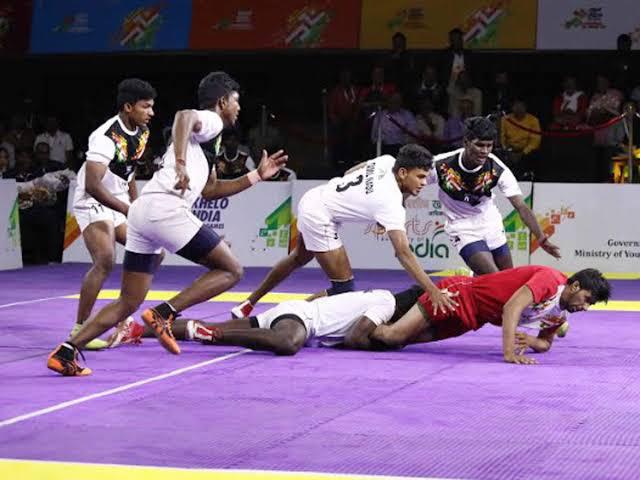Have you ever watched the fight winner declared and thought, “Wait… how did they win that?” Welcome to the sneaky, strategic, and often misunderstood world of stealing rounds. It’s not cheating. It’s not luck. It’s a skill that separates good martial arts fighters from great ones when the scorecards are razor close.
Understanding how to win close rounds could be the difference between having your hand raised or sulking back to the locker room after a fight.
What Does “Stealing A Round” Actually Mean?
Boxing, MMA, and Muay Thai judges score fights based on specific criteria: effective striking, aggression, octagon control, and damage. But here’s the thing: judges are human, and like the rest of us, they’re most influenced by what they saw last. It’s called recency bias.
“Stealing a round” usually means turning on the gas in the final 30 to 60 seconds of a round to make it look like you had the upper hand—even if you were on the receiving end for most of it. It’s all about optics, urgency, and momentum.
Does it work? You bet. It’s a time-tested tactic that’s helped countless fighters squeeze out a win when the rounds are too close to call.
Some of the ways to game scoring systems in combat sports and encourage judges to score close rounds in your favor include:
1) End Every Round Strong
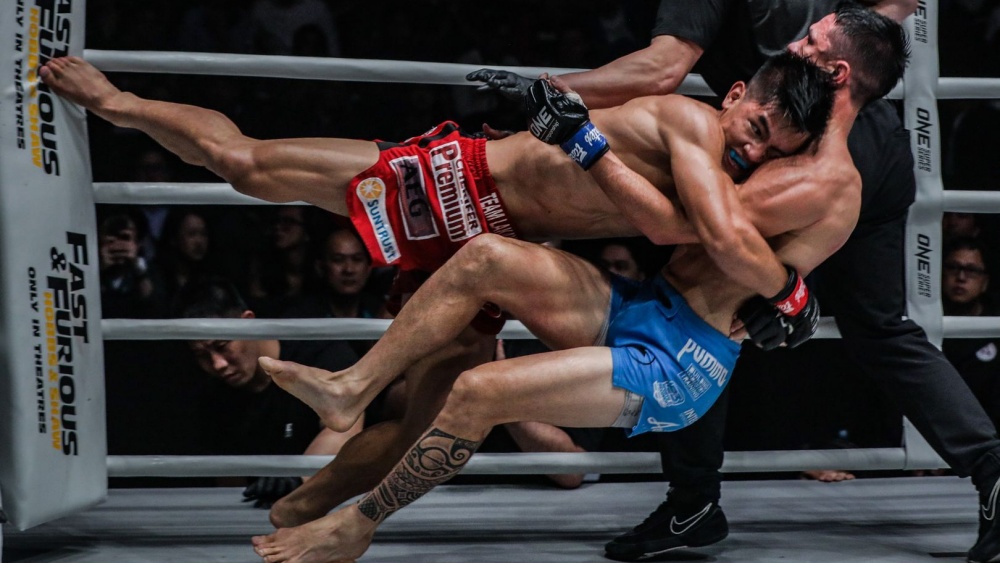
Takedowns are considered high-point scorers in many combat sports, often shifting momentum and securing dominant positions.
The final impression either fighter makes at the end of a round is often the most powerful. You can steal close or even rounds going in your opponent’s favor by dominating the last moments.
Here’s how:
- Turn Up The Volume: Throw more combos, press forward, secure takedowns, and make it obvious you’re the aggressor during the final seconds.
- Land Clean Shots: Judges love to see strikes that land clean. Don’t swing wildly at the round; instead, be surgical with your offense. A clean cross that staggers an opponent at the end of a round sends a stronger message than a barrage of strikes that don’t land cleanly.
- Control The Last Exchange: Finish on top or land a hard combo right before the bell. The judges will remember it.
2) Stay Active (Even When You’re Losing)
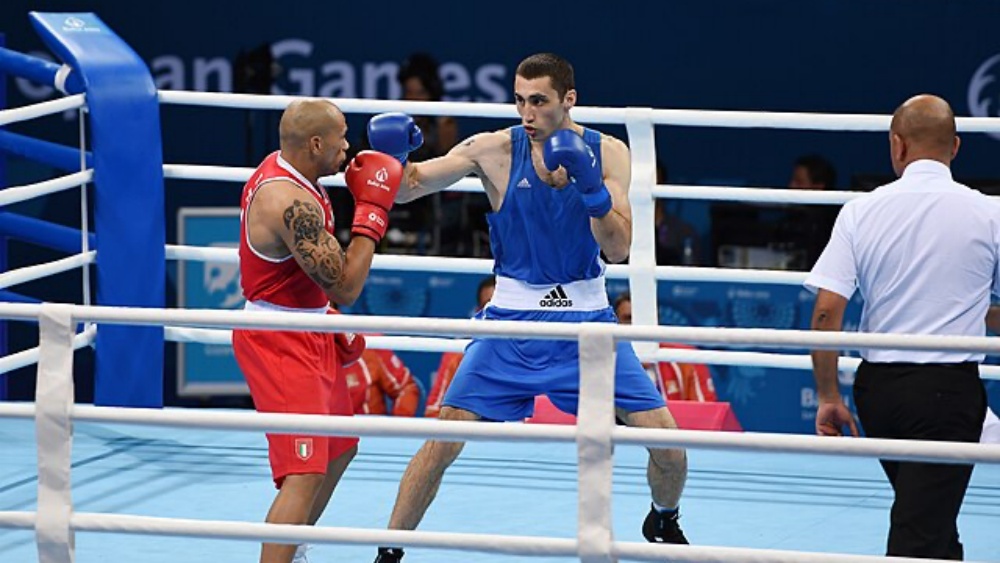
One of the key rules in competition is to never stop moving—staying inactive doesn’t score well with the judges and can cost you the round.
Keep fighting even if you’re getting out-struck or out-grappled. Don’t panic and don’t freeze. Judges don’t like inactivity. Throw something—even if it’s a feint, but keep working. Staying busy gives the illusion that you’re still in control even when you’re not. Even if you’re on your back in sports like MMA, spam elbows from the bottom until the referee stops the round. Do whatever it takes to show you’re not just sitting there waiting for the bell to save you. Activity scores points.
3) Sell Everything You Do
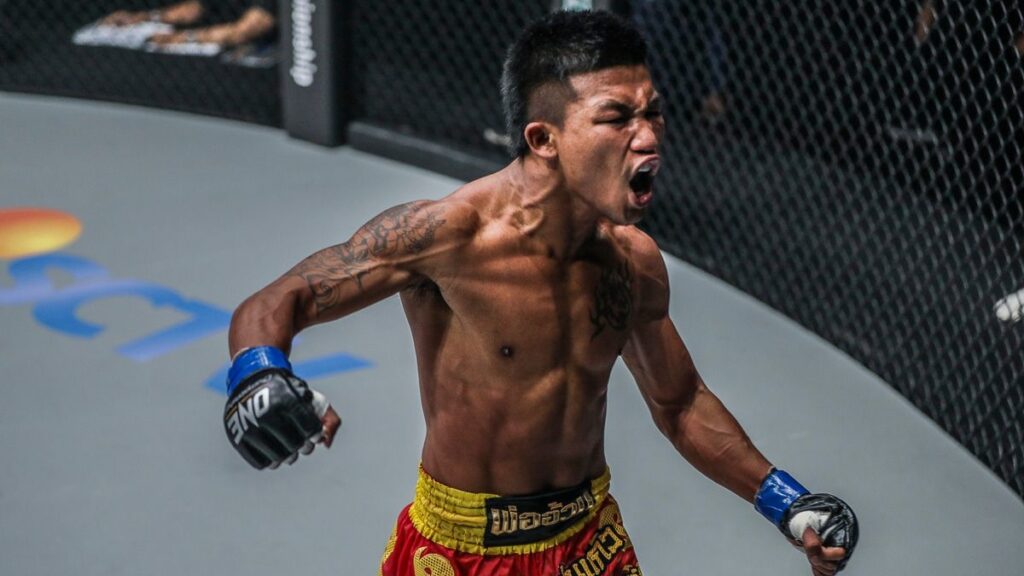
Confidence matters even in a fight. Coming back strong with a victorious shout shows the judges you’re unfazed and ready for more, even after a tough round.
Let’s be honest—Some fighters score points with the confident chops and moves they display in the ring. While we don’t recommend flopping like a soccer player who tripped on air, selling your strikes and reactions matters in combat sports.
You can sway judges over with little things like posturing after landing a hard strike. Experienced fight teams often overblow any little thing their fighter does to win the judges over by yelling every time they land anything, even if it was blocked.
Stuff a takedown, make a big deal about it. One of MMA legend Anderson Silva’s trademark moves was putting his hands on his hips and staring at his opponents after stuffing their takedowns, before taking a few steps back and motioning them to get back up as if saying, “get up and fight like a man.”
Little things like that show judges who’s controlling the action. Confidence sells, and judges reward fighters who “look” like they’re winning. Even something as minor as raising your hand after a close round and acting like you’re 100% confident you won could steal it.
4) Understand The Scoring Criteria And Play The Game
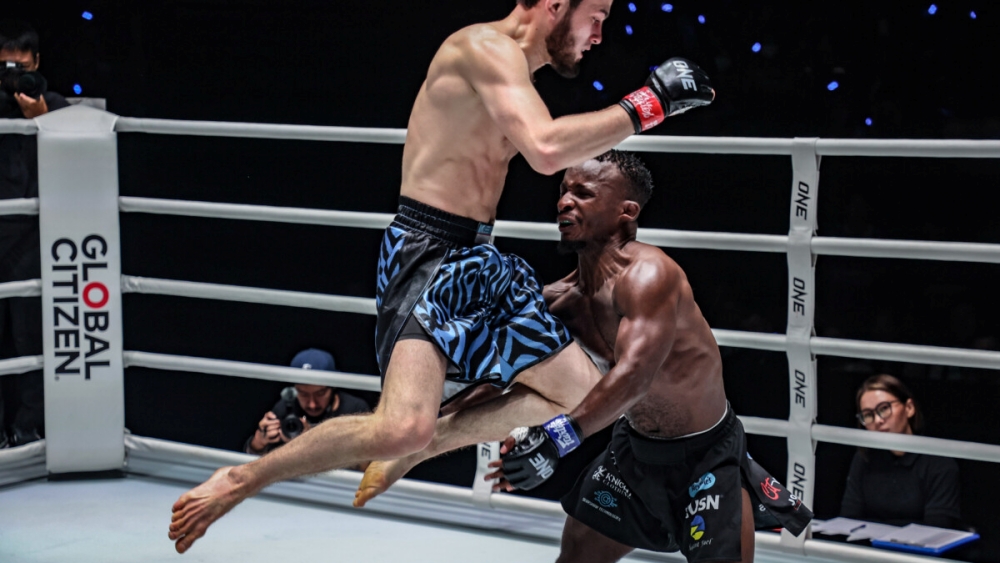
Learning what scores points can help tip the scales in your favor, especially in close rounds—be it a sweep, takedown, or a well-timed guard pass.
Different combat sports have slightly different scoring systems. Here’s a quick cheat sheet:
- Muay Thai puts a premium on clean strikes that land with power and cause damage. Sweeps, dumps, and clinch strikes also score points.
- Boxing judges look at clean punching, effective aggression, defense, and ring generalship.
- MMA is scored on effective striking/grappling first, then aggression, then cage control.
You can’t game the system if you don’t understand it. Spend some time watching fights with the commentary turned off. Score them yourself and see what sways you.
5) Manage Body Language Like A Pro
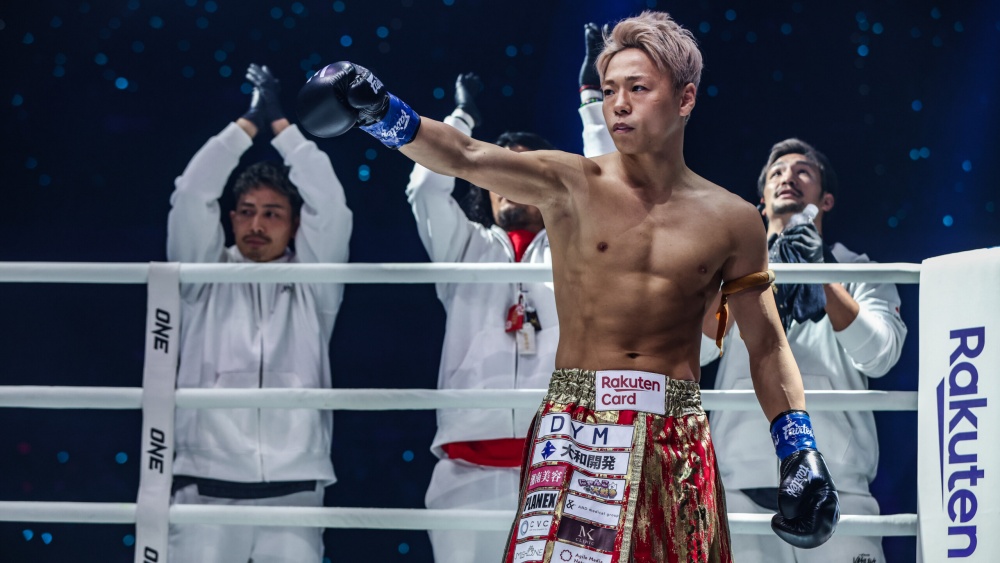
Body language is another important aspect of competing, it shows confidence, composure, and can even influence the judges.
Never let it show, even if you’re exhausted and barely holding it together. Judges are human. Looking gassed, hurt, or passive could tip the round against you.
- Breathe through your nose if possible. Keep your mouthguard covered.
- Don’t slump or circle without purpose.
- If you get caught, bounce back fast and return fire.
On the flip side, if your opponent starts wilting, capitalize on it. Put your foot on the gas and force the judge to compare your energy level to theirs. That contrast can win you the round.
6) Time Your Takedowns and Clinches
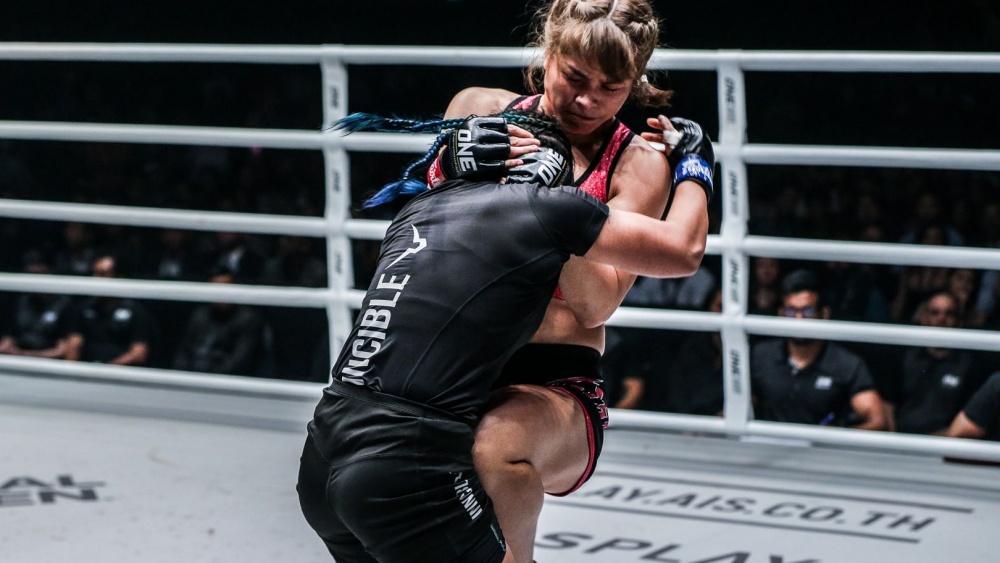
Knees in the clinch are among the best point scorers, especially when delivered with control and volume.
Takedowns are like exclamation marks. They don’t always win rounds on their own, but well-timed ones, especially at the end of rounds, can tip things in your favor.
If you’re in a close standup battle, scoring a takedown or landing a big throw in the final 30 seconds is often enough to sway the judges. You get more points if you land in a dominant position and do some damage with ground strikes before the round ends.
Similar strategies work in Muay Thai. Securing a clinch, landing knees, and then dumping your opponent on the canvas before the bell sends a strong message to judges.
It’s Not Just About Winning On Paper
You could land more strikes, have better stats, and still lose a round because the judges weren’t impressed with your performance in combat sports. It’s not fair, but that’s the reality.
Don’t just “do enough” during fights. Make it obvious. Judges score in real-time, typically without replays. You’re losing ground if you’re not making a strong impression. Winning a close fight isn’t about dominating every second. It’s about maximizing key moments—especially the ones judges remember.
- Finish strong.
- Stay active.
- Look like a winner.
- Use the scoring system to your advantage.
Above all, train like every round could be decided by one big moment, because sometimes, it is.
Conclusion
In a sport where perception can tip the scales, mastering the art of stealing rounds isn’t just clever—it’s crucial. Judges won’t remember every exchange, but they will remember who looked sharper, who finished stronger, and who controlled the key moments. So don’t leave your fate to chance. Understand the scoring, stay composed, and always fight like the round—and the win—depends on it. Because when things are razor-close, those final seconds might be the only thing standing between a hard-fought victory and a heartbreaking loss.
You may also like:
Pressure Vs. Precision: Which Style Suits You Best?
You’ve probably seen Floyd Mayweather slip punches in a boxing match like he’s Neo in the Matrix as he hands out boxing clinics. The Philly shell is the foundation of Mayweather’s airtight defense, rarely leaving…
The check hook is one of the most effective weapons you have against aggressive opponents who want to run you over. It’s a technique that remains effective at the highest levels of boxing and mixed…
Fear is a natural part of competition, especially in combat sports like Brazilian Jiu-Jitsu (BJJ), Muay Thai, boxing, and mixed martial arts (MMA). Whether you’re a first-time white belt entering your local tournament or a…
Everyone has a natural fighting style. Some instinctively look to bombard opponents with volume, while others prefer a more cautious approach. Some people feel more comfortable throwing strikes at attackers, while others prefer to wrestle…
Ask any coach or seasoned fighter, and they’ll tell you the same thing: your punches are only as effective as your footwork. Most people think boxing is all about fast jabs and powerful knockouts. While…
Your environment significantly influences what works and what doesn’t in boxing. Even something that might seem insignificant to casual boxing fans, like the size of a boxing ring, influences which tactics work best. Smaller rings…
Recently, many Brazilian Jiu-Jitsu grappling stars have made the move to showcase their talent on the ONE Championship global stage. One of the most exciting new acquisitions is Diogo Reis, joining the ranks of Marcelo…
In any striking-based martial arts such as Muay Thai, switch-hitting is a difficult skill but a tremendously valuable one to learn. Seamlessly changing your stance midway through a round completely changes the dynamic of a…
Bullying remains a serious problem worldwide. Over 30% of students globally have been victims of bullying, according to a UNESCO report. The consequences of bullying aren’t trivial either, with victims often feeling humiliated and helpless….
In Muay Thai, kicks are some of the most powerful and effective weapons. A well-timed roundhouse can break rhythm, score points, or end a fight. But kicks also come with risk. When you throw a…
Getting stuck in side control is something many Brazilian Jiu-Jitsu beginners have in common. The bridge and roll is often the first reversal BJJ students learn, followed by basic bottom guard sweeps like the scissor…
Grip strength plays a crucial role in mixed martial arts (MMA) and many grappling styles like Brazilian Jiu-Jitsu and wrestling. It turns out that having a strong grip doesn’t just help you to open jars;…































